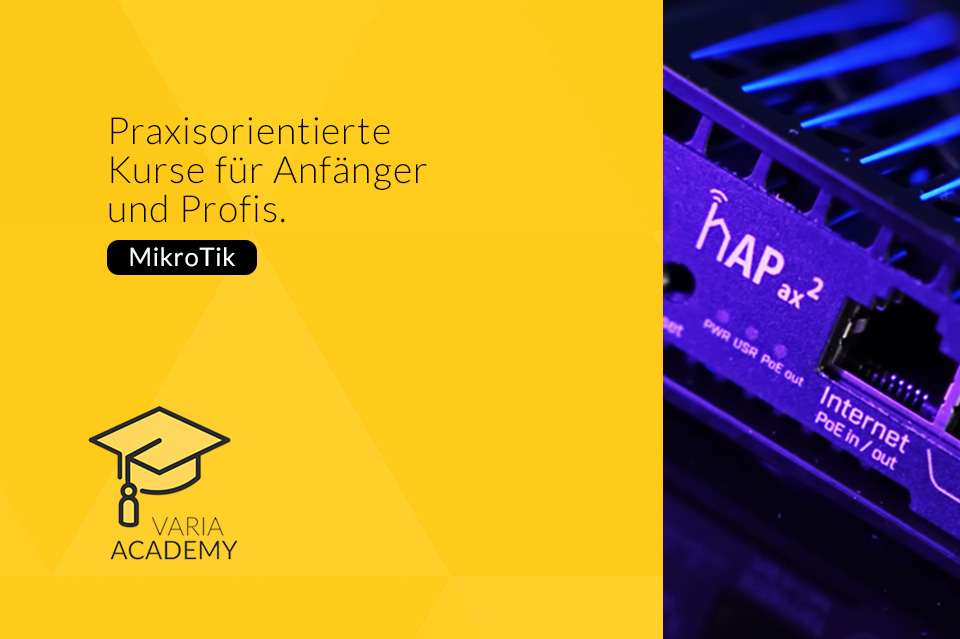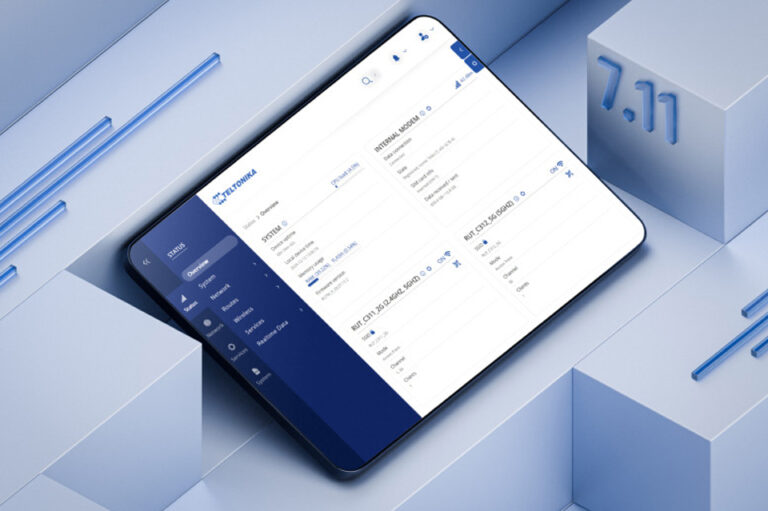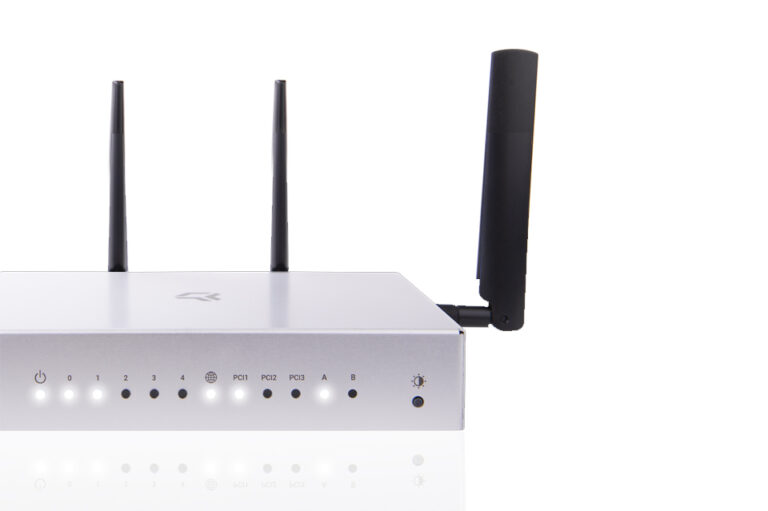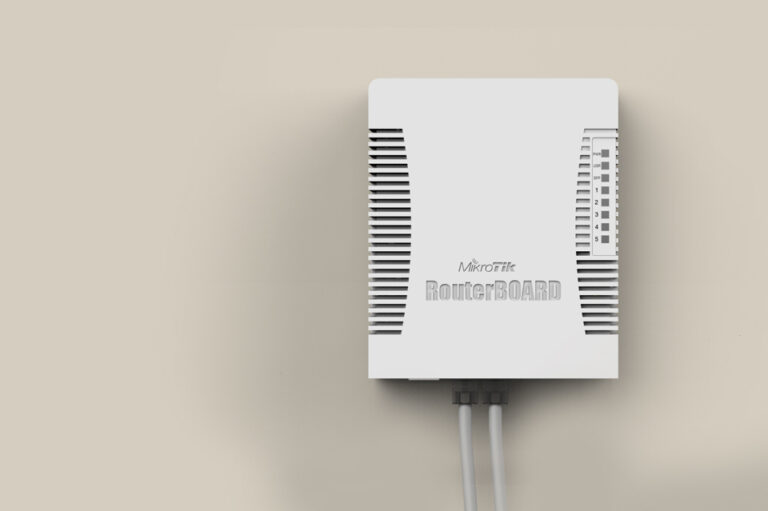MikroTik training courses provide you with the knowledge you need to configure MikroTik devices and software efficiently and securely. Whether you are a beginner who wants to learn the basics of network management or an experienced administrator who wants to deepen their skills – we offer practice-oriented courses for every level.
In our training courses, you will learn everything you need to know to master MikroTik RouterOS, including the configuration of routing, VPN, firewall, QoS, bandwidth management and much more. Our experienced trainer will teach you practical techniques that you can apply directly in your network environment.
An examination is taken at the end of each training course, which is a prerequisite for obtaining the certificate.
We would like to take this opportunity to introduce you to our coach Michael in a short interview:
Question: Dear Michael, we’ve been working together for a year now, so we thought we’d tell people something about us. You are our lecturer for MikroTik and Linux. Why don’t you briefly introduce yourself?
Looking to the future
What happens in Chemnitz in 2025 is more than just a one-off event – it is a glimpse into the future. The city has discovered its identity as a cultural metropolis and will continue on this path. The Capital of Culture is a new start for Chemnitz, a signal that culture is everywhere – in music, in art, in everyday life.
And who knows, maybe Chemnitz will not only be celebrated as the European Capital of Culture after 2025, but also as the new creative center of Europe. One thing is certain: the city still has a lot to tell!
Answer: The short introduction – as you usually find it in my presentations is ‘Linux Administrator / Consultant / Trainer / Nerd’.
Since 1994 I have been working with the GNU/Linux operating system and 17 years ago I decided to start my own business and founded the company `Linux-Schmie.de` in Oberhausen, Rhineland, with which I am still on the road today. As the name suggests, GNU/Linux is the linchpin of my work. It’s not just about the operating system, but also the applications that run on it and which today form the basis of the Internet. And at the age of 53, I still have plenty of time until I retire to support many interesting projects.

Question: How did you actually come to MikroTik and what was the reason that you wanted to offer training for it?
Answer: I’ve always heard about MikroTik and the RouterOS operating system that runs on the devices, but I haven’t really had much interest in using it. In contrast to a computer with a GNU/Linux on which you can actually put together everything yourself with the appropriate applications, I thought that you are quite limited in what you can do with the hardware and the RouterOS.
However, a colleague convinced me at a meeting of our local Linux User Group(https://lugor.de) with a small setup that you can “just” set up an access point with a small and inexpensive device – an mAP – together with a UMTS stick and a power bank and provide the regulars’ table with Internet via WLAN.
Of course, I bought an mAP straight away and was so surprised by its capabilities that I have switched my entire infrastructure to MikroTik since I first met it at the Stammtisch in 2013.
Since I already offer training on other topics, it was almost logical that I also wanted to offer training for MikroTik. I therefore had to attend the MikroTik training courses myself and also take part in a special “Train The Trainer” course in Riga in order to be accepted by MikroTik as a trainer.
Why I like training is also quickly explained. I enjoy introducing participants to the topics and helping them to learn.
Question: Were you a good student yourself?
Answer: The answer is quite short. No.
My time at school and also my training was not one of my best times as a student. I only learned to learn much later and saw how much fun it can be. Today, alongside my work, I always try to familiarize myself with new topics and learn new things.
Question: What demands do you place on your students?
Answer: Probably the same ones that I set myself. To enjoy learning and to be open to the topics that are being trained.
Depending on the training, it naturally helps to know the basics and requirements for the training and to actively participate in the training with your own knowledge.
Question: What makes your training courses so special? For example, do you have your own approach to the rather complex topics, or are you good at explaining things?
Answer: I can’t give an answer to that. The participants would have to answer that. In general, I always try to have enough knowledge myself for each training course to be able to answer any questions immediately beyond the direct topics. The course of a training session often results from the questions and wishes of the participants.
Question: Is there an area at MikroTik that you think should be given more attention or for which training should also be offered?
Answer: Scripting. MikroTik RouterOS is one of the few operating systems with a deep integration for scripting. Many tasks that are not offered directly by RouterOS can be solved via scripting.
We have already tried several times to have the topic included in the certifications offered by MikroTik. So far it hasn’t worked out, but we want to offer our own training on the subject in the second half of the year at the latest. Perhaps there will be enough interested parties for us to convince MikroTik afterwards.
Question: What is your favorite MikroTik event and why?
Answer: First of all, of course, there is our own MikroTik User Group Oberhausen, which meets online once a month (dates at https://linux-schmie.de). Since last year, however, the trainers of the MikroTik BootCamp(https://mikrotik.camp) have also organized an annual event in Prague – the MikroTik Professional Conference (https//mtpc.world). The date for 2025 has already been set. There are also a number of forums and social media groups where people talk/write about MikroTik.
Question: Now that we have successfully completed our first year together and the participants have sung your praises, what are your wishes for the new year?
Answer: I would be delighted if we could give many participants a deeper understanding of MikroTik in the new year. This applies both to beginners and to those who have already completed and passed the first training course – the MTCNA – with us and are interested in further training courses.
Apart from that, I am looking forward to working with the VARIA Academy again in the new year in such a great and uncomplicated way.
Of course we’re looking forward to that too. You can find the current training sessions right here in the link:







